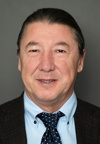SENATORS’ STATEMENTS — Indigenous Self-Determination
May 23, 2024
Honourable senators, Friday, May 17, 2024, marked the passing of Mi’kmaw elder Bob Pictou.
Throughout his 85 years, he created a close and extended Mi’kmaw family network in several Mi’kmaw communities. Bob spoke Mi’kmaw fluently despite attending the Shubenacadie Indian Residential School and the Indian day school systems. As elders do, he would often share stories of his past. This would help guide and create new approaches to many of life’s pressing issues.
Bob was born to a non-Indigenous family. At a young age, he was dropped off at the household of a Mi’kmaw family, who adopted him on the spot. I will also add that my great-grandfather Tom Kennedy was also born to a non-Indigenous family. He, like Bob, was dropped off at the local reserve. Both Bob and Tom later refused to go back and live with their biological families. They believed they were Mi’kmaw and were, in fact, accepted in their community as Mi’kmaw.
Colleagues, as I finish up my tour throughout Mi’kma’ki, I am constantly reminded of the need for the Mi’kmaq to define who they are as a people — as a nation. Mi’kmaq, like most First Nations communities, are constantly changing, and we must break the shackles of an outdated colonial structure called the Indian Act.
This act recognizes First Nations persons based on status. The Indian Act provides a second-generation cut-off for status Indians who have children through a union with a non-status person. These provisions effectively legislate Mi’kmaw and all First Nations people out of existence.
The result is that there are many persons who live and are accepted as Mi’kmaw, but do not have Indian status. This effectively creates a different class of persons in each community since many federal programs and services are allocated to status persons only.
Colleagues, the path to reconciliation takes many forms. Often it involves an intimate understanding of some of the pressing realities that First Nations communities face each day.
Every First Nation knows the people — its citizens — that form their community. Let us walk this path together with true wisdom, understanding and compassion for the benefit of all our future generations.
Wela’lioq. Thank you very much.

